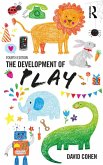"Recommended for readers interested in gaining tools to improve their behavior and the tendency to want control of everything and everyone." -Library Journal
Describes how people grossly overestimate the power they have over others while simultaneously missing opportunities to enjoy and use the power they have over themselves.
Based on scientific evidence (and lots of real-life experience), The Illusion of Control: A Practical Guide to Avoid Futile Struggles makes a well-justified case that people grossly overestimate how much power they have over others and simultaneously miss out on opportunities to enjoy and exploit the power they have over themselves. Readers learn how to reduce stress and improve quality of life by giving up ineffective habits and attempts at controlling the uncontrollable. The book intentionally begins by challenging readers to analyze where and when they are objectively not in control and how much failed control costs.
In a second block of chapters, broad strategies are suggested in order to bring about change, and multiple psychological theories are offered as tools for gaining control. Next, these tools are applied to changes within the individual to target sleep, drug use, weight control, and negative mood states. Finally, applications will demonstrate how to gain partial control (but still less than they wish) with respect to strangers, children, spouses, friends, workplaces, and broad political questions.
Describes how people grossly overestimate the power they have over others while simultaneously missing opportunities to enjoy and use the power they have over themselves.
Based on scientific evidence (and lots of real-life experience), The Illusion of Control: A Practical Guide to Avoid Futile Struggles makes a well-justified case that people grossly overestimate how much power they have over others and simultaneously miss out on opportunities to enjoy and exploit the power they have over themselves. Readers learn how to reduce stress and improve quality of life by giving up ineffective habits and attempts at controlling the uncontrollable. The book intentionally begins by challenging readers to analyze where and when they are objectively not in control and how much failed control costs.
In a second block of chapters, broad strategies are suggested in order to bring about change, and multiple psychological theories are offered as tools for gaining control. Next, these tools are applied to changes within the individual to target sleep, drug use, weight control, and negative mood states. Finally, applications will demonstrate how to gain partial control (but still less than they wish) with respect to strangers, children, spouses, friends, workplaces, and broad political questions.









